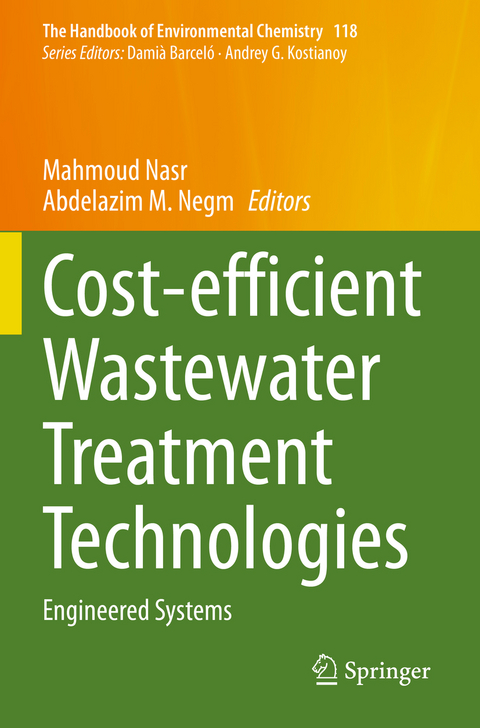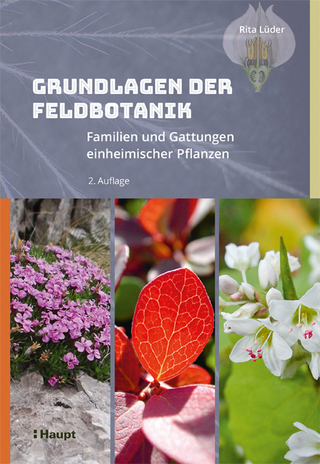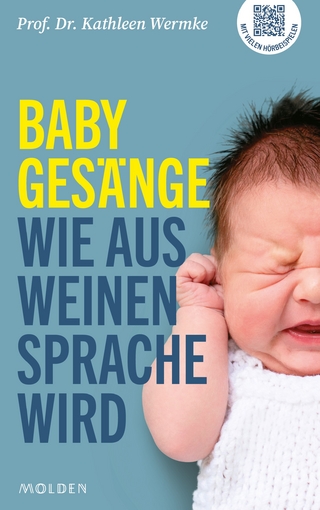
Cost-efficient Wastewater Treatment Technologies
Springer International Publishing (Verlag)
978-3-031-12904-9 (ISBN)
This is the second of two volumes that together provide a comprehensive overview of the current sustainable and low-cost wastewater treatment technologies applied in communities that lack the financial and technical resources needed for an environmental, disease prevention and health nexus.
This book reviews engineered wastewater treatment technologies and discusses their application in regard to greenhouse gas emissions, natural resource utilization, land-use, and energy and water savings. The chapters from expert contributors cover topics such as aerobic and anaerobic biological treatments, chemical treatments and precipitation, and disinfection. Readers will also learn about simplified and low-energy wastewater treatment plants, strategies for wastewater reuse, and nanotechnologies for wastewater environmental management. The feasibility regarding time and cost of implementing such technologies is also discussed in this book, and particular attention is given to the removal of conventional and emerging pollutants, toxicants, and heavy metals.
Given the breadth and depth of its coverage, the book offers an invaluable source of information for researchers, students and environmental managers alike.Dr. Mahmoud Nasr is an Associate Professor of Sanitary Engineering at Alexandria University, Egypt, since 2020. He received his Ph.D. degree in 2014 from the Egypt-Japan University of Science and Technology (E-JUST) and his M.Sc. from Alexandria University in 2010. Dr. Nasr was a Postdoc Fellow at the Institute for Water and Wastewater Technology from Durban University of Technology (DUT), South Africa in 2015, a Research Scientist at the Chemical Engineering Department, Texas A&M University, Qatar from 2016 to 2018, and a Visiting Scientist at DUT in 2019. He has participated in several international projects, published more than 80 papers in national and international journals and conferences, and contributed to more than 10 chapters. He was also awarded the Top 10 Postdoc Fellow at DUT in 2016. He is a member of the Editorial Board of the Journal of Scientific Research and Reports. He was a member of the Scientific Committee of several international conferences such as International Conference on New Energy and Future Energy System (2019), International Conference on Sustainable Environment and Agriculture (2019), International Conference on Fuzzy Systems and Data Mining (2019), and Pollution Control Summit (2020).
Prof. Abdelazim Negm is a Professor of Hydraulics at the Faculty of Engineering, Zagazig University, Egypt, since 2004. He received his Ph.D. in 1992 from Zagazig University (ZU), and his M.Sc. from Ain shams University in 1990. He was the vice dean of the Faculty of Engineering of ZU from December 2008 to December 2011 and was the head of the Environmental Engineering Dept. at Egypt-Japan University of Science and Technology (E-JUST), Egypt, from October 2013 to March 2016. He has participated in several international projects since 2006, published more than 300 papers in national and international journals and conferences and contributed to more than 50 chapters. Professor Negm is a member of the editorial board of The Handbook of Environmental Chemistry book series at Springer and he has been actively contributing to the series by editing several volumes since 2017. He is also the editor-in-Chief of the Egyptian International Journal of Engineering Sciences and Technology, and an associate editor of the Euro-Mediterranean Journal for Environmental Integration. Professor Negm is the head of the permanent scientific committee on Water Resources for promotion of professors and associate professors, the supreme council of Egyptian Universities, Egypt, and he is listed in some of the most prestigious directories including the American Biographical Institute (ABI), Inc, USA, "Marquis Who's Who in the World", 27th Ed., 2010, USA and in IBC's 2000 Outstanding Intellectuals of the 21st Century by International Biographical Center, Cambridge, England.
Overview, Objectives, Principles, and State-of-the-Art of Engineered-Based Wastewater Treatment Technologies.- Simplified Engineered-Based Wastewater Treatment Technologies: Energy, Climate Change, and Land-Use Aspects.- Biotechnology for Green Future of Wastewater Treatment.- Environmental Impact Assessment of Wastewater Reuse.- Cavitation Based Processes for Water and Wastewater Treatment.- Wastewater Treatment Using Biochar Technology.- Adsorption: A Cost-effective Wastewater Treatment Technology for Removal of Conventional and Emerging Organic Contaminants.- Nanotechnology-enabled Multifunctional Material for Removal of Toxicants from Wastewater.- Advanced Configurations for Efficient Membrane Bioreactors: Energy Saving Approaches.- Wastewater Treatment by Trickling Filter Technology as Low Energy Consumption Solution (Case Studies -Worldwide).- Membrane Bioreactor for Wastewater Treatment: Current Status, Novel Configurations and Cost Analysis.- Activated Sludge Fungal Community in Wastewater Treatment Plants.- Anaerobic Treatment Systems: A Sustainable and Clean Environment with Future Hope of Renewable Energy.- Co-digestion of Fruit and Vegetable Wastes: An Opportunity to Enhance the Circular Economy of Anaerobic Digesters.- Trihalomethanes (THMs) in Wastewater: Causes and Concerns.- Degradation of Selected Xenobiotics from Wastewater by Wood-Decay Fungi.- Prospects and Potential Role of Biological Treatment of Textile Effluent to Restore Water Reservoir.- SnO2-Mixed Oxide Electrodes for Water Treatment: Role of Low Cost Active Anode.- Emerging Organic Compounds (EOCs) Removal from Water and Wastewater Using Innovative Technologies and Materials.- Intermittent Cycle Extended Aeration System (ICEAS) and its Application In Wastewater Treatment.- Sustainable and Green Management of Wastewater Under Climate Change Conditions.- Microbial Biosurfactants and their Implication Towards Wastewater Management.- Best Practice Management of Wastewater in Poland.- Emerging Technologies of Sludge Management (Drying, Incineraon, Pyrolysis, Torrefacon).- Towards The Global Rise of Zero Liquid Discharge for Wastewater Management: The Mining Industry Case in Chile.
| Erscheinungsdatum | 04.01.2024 |
|---|---|
| Reihe/Serie | The Handbook of Environmental Chemistry |
| Zusatzinfo | XIII, 532 p. 1 illus. |
| Verlagsort | Cham |
| Sprache | englisch |
| Maße | 155 x 235 mm |
| Gewicht | 819 g |
| Themenwelt | Sachbuch/Ratgeber ► Natur / Technik ► Natur / Ökologie |
| Naturwissenschaften ► Chemie ► Technische Chemie | |
| Schlagworte | Anaerobic Treatment Systems • Biochar Technology • Cavitation in Wastewater Treatment • Intermittent Cycle Extended Aeration System • Membrane bioreactors • Microbial biosurfactants • Sludge management • Trickling Filter Technology • Trihalomethanes in Wastewater Treatment • wastewater • Zero liquid discharge |
| ISBN-10 | 3-031-12904-0 / 3031129040 |
| ISBN-13 | 978-3-031-12904-9 / 9783031129049 |
| Zustand | Neuware |
| Informationen gemäß Produktsicherheitsverordnung (GPSR) | |
| Haben Sie eine Frage zum Produkt? |
aus dem Bereich


